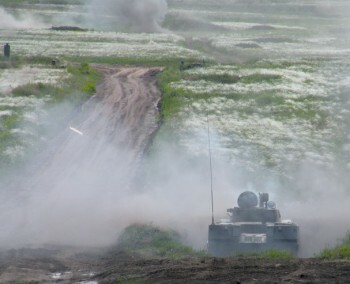
The Arms Trade Treaty: Building a Path to Disarmament
March 9, 2013The goal of this article is to examine and suggest proposals that could enhance the role of the international Arms Trade Treaty—presently in discussion at the United Nations—in the regulation of the international arms trade and in addressing the role of the legal trade in: a) providing the bulk of the arms used in armed conflicts, armed violence and human rights abuses; b) the excessive arming of

Pinocchio Ltd. The NRA and its corporate partners: US shipments of small arms ammunition by sea
March 5, 2013The National Rifle Association (NRA) claims to have monitored in the last 20 years all United Nations activities that could impact Second Amendment rights. Its latest target is the Arms Trade Treaty (ATT), an international treaty to establish common international standards for the import, export, and transfer of conventional arms presently under discussion at the United Nations. The international

A Code of Conduct for Arms Transport by Air. Transport Services under an Arms Trade Treaty Series
August 12, 2012This report is a discussion of some key considerations for the development of and “Air Cargo Industry Voluntary Code of Conduct relating to the transport of arms, ammunition and other military equipment” (ACI Code). The purpose of such a Code is to encourage as many aviation companies and other actors as possible in the air cargo industry to adhere to existing and new standards relating to the tr

Rough Seas. Maritime Transport and Arms Shipments
July 6, 2012As stated by the authors in their report “Transparency and Accountability” (February 2012), the Chairman’s Draft Paper (14 July 2011) presented by the Arms Trade Treaty’s Preparatory Committee (ATT PrepCom) included within the ATT scope certain activities that should fall under the category of “services”, such as transport and brokering. However, no provision has been envisaged for the monitoring

‘If you resist, we’ll shoot you’: The Democratic Republic of the Congo and the case for an effective Arms Trade Treaty
June 7, 2012IPIS contributed to the research for this AI report. In July 2012 UN Member States are to agree the final text of a comprehensive Arms Trade Treaty. The experience of arms proliferation and abuse in the Democratic Republic of the Congo should help to persuade States to establish strict rules consistent with States’ existing responsibilities under international law. This report focuses on several c

Study on the development of a framework for improving end-use and end-user control systems
February 16, 2012(UNODA Occasional Papers, No. 21, December 2011) Already, in 2002, the Security Council called upon States to establish an effective national end-user certificate system and to study the feasibility, as appropriate, of developing such a system at the regional and global levels, as well as information exchange and verification mechanisms. This study assesses existing practices regarding end-user ce

Transparency and Accountability. Monitoring and Reporting Methods Under An Arms Trade Treaty
February 8, 2012Without an understanding of the existing practices of States regarding their commonly agreed standards for the monitoring and reporting of their international transfers of conventional arms, it will be very difficult to draft many of the basic provisions of the Treaty to ensure compliance and enforcement. This report therefore seeks to clarify and discuss existing terminology and reporting practic
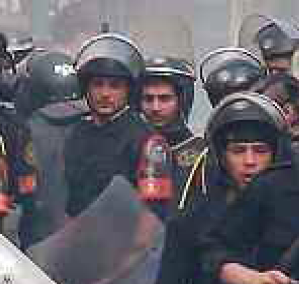
Arms Transfers to the Middle East and North Africa: Lessons for an effective arms trade treaty
November 7, 2011The numerous unlawful killings and other gross human rights abuses committed in response to the mass protests and demands for change that have gripped the Middle East and North Africa (MENA) region since late 2010 underscore, both vividly and tragically, the urgent need for the establishment and implementation of an effective global Arms Trade Treaty (ATT). All across the region, government author
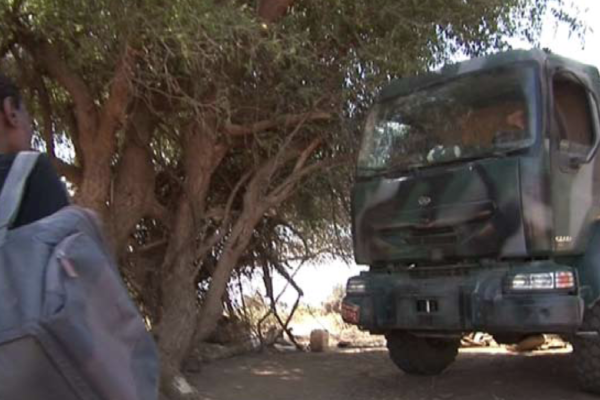
“Véhicules civils militarisables” and the EU arms embargo on Sudan
September 13, 2011The ongoing humanitarian crisis in Darfur has been overlooked recently because the international community has been focusing on the popular revolts in North Africa in the first half of the year and South Sudan’s peaceful referendum on secession from northern Sudan, and the subsequent violence in and over the contested Abyei region, In December 2010, however, fighting in Darfur resumed and has cont
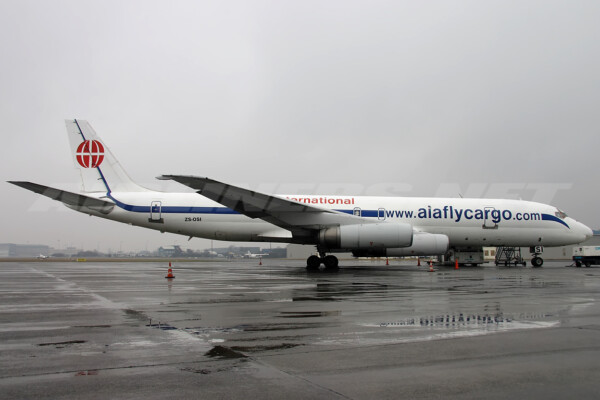
The Arms Flyers. Commercial Aviation, Human Rights, and the Business of War and Arms
June 30, 2011In the last decades, the “business of war” has attracted thousands of civilian transport and logistics companies, especially in the aviation sector. State and non-State actors engaged in armed conflicts or in military operations that require substantial logistic support have increasingly resorted to the services of civilian transport operators to fulfill their transport and logistics needs. For ai

The Karamoja Cluster of eastern Africa: Arms transfers and their repercussions on communal security perceptions
December 31, 2010Nomadic peoples are often, if not universally, perceived as a problem by the governments of the nation states who have responsibility for them; this is particularly so in the case of the three nations with which this report is concerned, viz: Kenya, Uganda and (southern) Sudan. The pastoralist societies within the Karamajong cluster have been unable to adequately defend themselves politically agai

Mapping the Labyrinth: more on the strange weapons flight of 4L-AWA
October 1, 2010This research report is the third in a series about the case of a IL-76 aircraft used for an apparently clandestine arms flight in provenance from Pyongyang – in contravention of the United Nations arms embargo on North Korea -, which was impounded by Thai authorities during a technical stop in Bangkok December 12, 2009. Two previous research reports on this unusual case were published by IPIS and
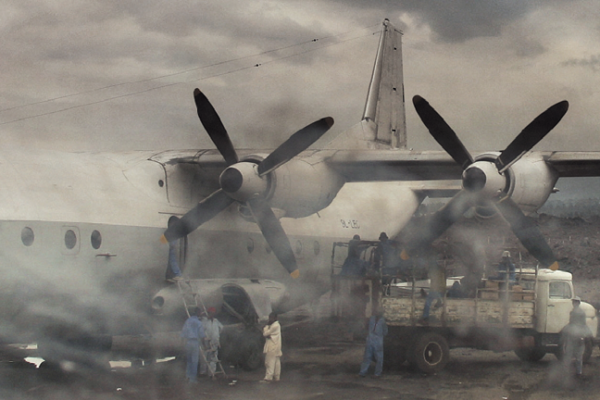
Deadly Movements. Transportation Controls in the Arms Trade Treaty
July 1, 2010Effective regulation of the global trade in conventional arms must include adequate provisions to control the physical movement of arms across international borders. The proposed Arms Trade Treaty (ATT) should be designed to prevent unauthorised or irresponsible international transfers of weapons, munitions and related equipment internationally: it must therefore require states to impose effective

From deceit to discovery: The strange flight of 4L-AWA (update)
February 9, 2010A joint IPIS/Transarms publication. Download in pdf or open with issuu reader. http://issuu.com/ipisresearch/docs/from_deceit_to_discovery-_the_stran_36e12e3d87b0d9

Zimbabwe – Arms and Corruption: fuelling human rigths abuse
July 17, 2009The following examples of irresponsible arms transfers involving Zimbabwe and other actors should be of great concern to the international community. The examples cited below are intended to illustrate further the need to ensure that the proposed international Arms Trade Treaty is as comprehensive as possible, and fully reflects the obligations of States to prevent arms transfers which pose a subs
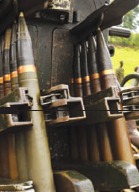
Cieli Neri d’Africa
June 23, 2009Download in pdf or open with issuu reader. http://issuu.com/ipisresearch/docs/20090623_ilmanifesto

Fuelling Conflict – Foreign Arms supplies to Israel/Gaza
February 9, 2009With fragile ceasefires now in place in Gaza and southern Israel, the full extent of the devastation caused in recent weeks is becoming increasingly clear. Amnesty International researchers visiting Gaza and southern Israel during and after the fighting found evidence of war crimes and other serious violations of international law by all parties to the conflict. Download in pdf or open with issuu
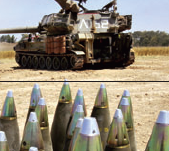
Un cargo di morte
January 20, 2009Download in pdf or open with issuu reader. http://issuu.com/ipisresearch/docs/20090120_ilmanifesto

Illicit brokering of SALW in Europe: lacunae in Eastern European arms control and verification regimes
January 6, 2009Download in pdf or open with issuu reader. http://issuu.com/ipisresearch/docs/danssaert_bjt-4

Tirana-Kabul, e bufera sulla Rice
June 24, 2008Il dipartimento di stato Usa nella bufera: nascosto al Congresso il trasferimento di tonnellate di munizioni dall’Albania all’Afghanistan, in violazione delle leggi statunitensi. Le pessime condizioni dell’arsenale non preoccupano gli americani: a morire a causa di armamenti difettosi saranno solo i soldati di Kabul. Download in pdf or open with issuu reader. http://issuu.com/ipisresearch/docs/sta

